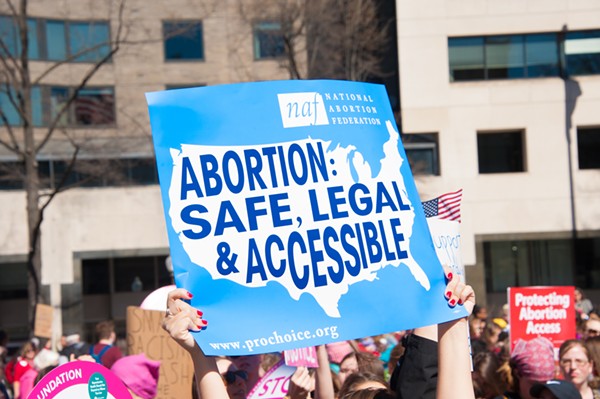A federal judge has declined to stop the government from blocking a teenage girl living in Texas from getting a legal abortion. The 17-year-old girl (dubbed "Jane Doe" in court documents) is an undocumented immigrant currently in the care of the federal government, since she travelled to the U.S. as an unaccompanied minor, meaning she is entitled to U.S. health care.
But, while U.S. Magistrate Judge Laurel Beeler said she found “no justification” for the government restricting Doe's right to an abortion, she said the issue is out of her hands. In order to expedite Doe's request for an abortion (an extremely time-sensitive request), the American Civil Liberties Union linked her request to another somewhat similar case already in Beeler's court. But Beeler ruled Doe's situation was too unrelated to the already-active lawsuit, one filed by the ACLU in June 2016 opposing the use of federal funds to back faith-based groups caring for unaccompanied immigrant minors who deny them access to birth control and abortions.
Doe is currently living in a Brownsville facility for undocumented and unaccompanied minors run by the feds. According to Doe's Oct. 5 court testimony, she had obtained the judicial bypass necessary to obtain an abortion in Texas as a minor, attended doctors appointments, and was prepared to go through with the procedure.
But, she wrote: "Defendants prohibited me from traveling to the health care center for the examination, counseling, and abortion. feel like they are trying to coerce me to carry my pregnancy to term."
Texas Attorney General Ken Paxton sided with the government, and issued a brief to the court warning that if Beeler granted ACLU's request, she'd create a "free-for-all" for immigrants seeking abortion.
Instead of allowing her to get the procedure, federal officials urged staff to take her to a "Crisis Pregnancy Center" — a cryptic name for religious, non-medical facilities that often offer free "pregnancy counseling" meant to dissuade women from getting an abortion.
In court Wednesday, Judge Beeler agreed that this was out of line.
"The government’s legitimate interest cannot justify actively preventing a woman from getting an abortion," she writes in her ruling. "The government may not want to facilitate abortion — but it cannot block it."
However, Beeler said she couldn't “form a substantially different case that does not have common questions of law and fact” with the original ACLU claim.
After Wednesday's decision, ACLU senior staff attorney Brigitte Amiri called the ruling a "serious disappointment" because it further delays Doe's abortion, and a later abortion always comes with higher medical risks.
“Although the court found it couldn’t hear the case, it was careful to explain that the government has no business blocking Jane Doe’s abortion," she said in a statement. "Jane Doe has already been blocked by the Trump administration from two appointments related to her abortion care. But she has shown tremendous courage and persistence, and we’re not giving up."
Amiri said the ACLU will continue to pursue "all avenues of justice" in Doe's case.


